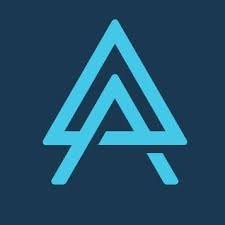What is Runic?
Q: Can you briefly introduce yourself and Runic?
A: I’m Dan Edelman, CEO and co-founder of Runic. Runic uses generative AI to help businesses with consumer research and product monitoring. We focus on transforming extensive, unstructured data into actionable insights for marketing and product teams. Before the emergence of generative AI, comprehending and automating the analysis of the meanings of such conversations was a challenging task. Now, we can accomplish this more effectively.
Q: I love the name “Runic”. It has a certain charm to it, doesn’t it?
A: Thank you! The name draws inspiration from the myth of Odin, where runes reveal to him what people think and feel. There’s an element of mystique in generative AI, similar to the runes. We understand how it functions, but the exact reasoning behind its specific outputs often needs to be discovered. This mirrors Odin’s ancient problem in understanding people’s thoughts and feelings.
Why Alchemist?
Q: How did the Alchemist Accelerator become a part of Runic’s journey?
A: Alchemist entered our radar thanks to my interaction with someone from a successful venture that had gone through Alchemist. In seeking advice for running a startup, I connected with a team member, and later with their CEO and founder. They spoke very positively about Alchemist and encouraged us to apply. What appealed to me about Alchemist, compared to other accelerators, was its clear focus. While many accelerators cater to a wide range of startups, Alchemist excels in supporting B2B ventures, offering tailored resources for this specific domain.
The Application Process
Q: Can you describe the process of applying to Alchemist Accelerator?
A: Sure, the application process for Alchemist began with an online form. After submitting that, we went through only one interview, but it was quite intensive. We were in front of about four or five partners from Alchemist who rigorously questioned us. It was a moment where we really had to stand firm on our vision and the potential of Runic. To be honest, I wasn’t completely sure how it went immediately afterward, but fortunately, we were accepted.
Funding and Equity
Q: And what does the admission process involve in terms of funding and equity?
A: As part of joining Alchemist, they provided capital in exchange for equity. This also opened the doors to Alchemist’s extensive network, which is a huge asset for any startup. The network, resources, and funding made this incredibly worthwhile for us
A Day in the Life at Alchemist Accelerator
Q: What was a typical day like in the Alchemist Accelerator program?
A: The Alchemist Accelerator experience was both enriching and communal. With a cohort of about 15 to 20 companies, it was a tight-knit group. We had several events each week where experts in various fields, like sales or product development, were brought in. They shared their experiences, what strategies work, what doesn’t, and how companies at our stage should approach these areas.
Additionally, there were regular check-in sessions with the group. In these sessions, we would discuss our weekly progress, celebrate successes, and openly talk about challenges. This environment fostered a strong sense of camaraderie and support among us. I’ve formed great relationships with other founders, with whom I can candidly discuss struggles and achievements. This sense of community is a unique aspect of the Alchemist program.
Q: What aspect of the Alchemist program did you find most appealing?
A: The most exciting part was undoubtedly the preparation for Demo Day. This was a culmination of our efforts, where we had to succinctly distill our vision and present it. Collaborating with our sales coach, CEO coach, and other professionals we connected with through Alchemist was instrumental. This event led to significant outreach from various companies, and we were successful in raising additional funds. It was also an excellent networking opportunity, allowing us to build connections with firms that tend to invest in more mature companies.
Q: Was there any part of the program you found lacking or underwhelming?
A: The primary challenge was the virtual nature of some components of the program, though nearly every accelerator program operates virtually these days. While Alchemist did a good job organizing in-person events, which are vital for relationship-building, the virtual aspect sometimes can sometimes create disconnect among founders. However, this format did allow for a diverse range of companies from all over the world to participate. And the virtual format didn’t impact our business development or growth in any way.
Q: Has Alchemist played a significant role in Runic’s current position?
A: Absolutely, Alchemist has been pivotal for Runic. The network alone has been invaluable. Almost all of our funding came through direct or indirect connections from Alchemist. The access to experts in various fields remains a crucial resource. Even after graduating from the program, we continue to use the Alchemist portal to explore potential collaborations and opportunities. The ongoing support is a testament to the lasting impact of the accelerator on our journey.
Advice for Aspiring Accelerator Applicants
Q: Do you have any advice for those considering applying to Alchemist or other accelerators?
A: It’s crucial to understand that the startup landscape is vast and varied, with numerous accelerators available. I highly recommend doing thorough research before choosing an accelerator. Being part of an accelerator is incredibly beneficial for startups, primarily because running a startup is unlike any other job. There are countless unknowns and moments where you have to move forward, sometimes without clear direction.
An accelerator can be a guiding force during these times. It connects you with experienced individuals who, while they may not have all the answers, can support and help shape your decision-making process. Although I’m biased towards Alchemist due to our positive experience, I acknowledge that there are many excellent programs out there. Alchemist, in particular, stands out for its small class sizes, which allows for more focused attention and support. Regardless of the accelerator you choose, the key is to find one that aligns with your startup’s needs and can provide the right kind of mentorship and resources to help navigate the challenging journey of building a startup.


